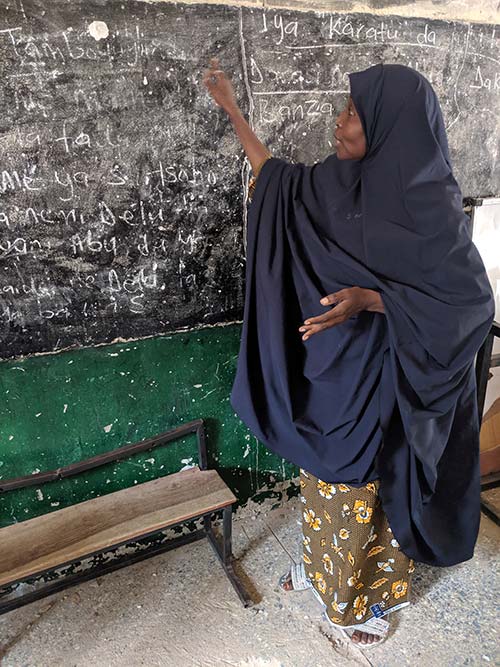Conflict, forced relocation and climate change have disrupted the lives of millions of people around the world. In Ukraine, for example, a year of armed conflict has resulted in the displacement of more than 13 million people and the destruction of much of the nation’s infrastructure, including schools and universities. As a result, the education of many young Ukrainians has been interrupted, as has their ability to build their futures.
Tagged: social-emotional learning
-
-
High-growth careers require soft skills, too
Written by
The Dominican Republic has one of the fastest-growing economies in Latin America, yet its employers are struggling to find qualified applicants for jobs such as software development and nursing. Furthermore, young people between the ages of 15 and 24 face high unemployment rates.
-
For the past six years, FHI 360 has worked with community schools in New York City and Hempstead, Long Island. When COVID-19 hit earlier this year, the way we did our work immediately shifted away from focusing on in-person supports for students and families. Our first hurdle was bridging the digital divide, that gap between who has access to technology and the internet— and the skills to use them — and who doesn’t.
-

Maryam Mustapha teaches at a nonformal learning center in Maiduguri, Northeast Nigeria. Her classes include social emotional learning, a critical component of programming for education in emergencies. Photo credit: Anna Eisenberg/FHI 360
In emergency contexts, when many support structures fracture, education can provide protection, heal trauma and inspire hope. Education programs that feature social-emotional learning (SEL) interventions — the process through which children and adults understand and manage emotions and develop self-control and interpersonal skills — have the potential for large-scale impact in fragile and humanitarian contexts. SEL is an especially powerful healer for migrants, refugees and children who can be scarred from prolonged insecurity, trauma, loss, violence or separation from family or homeland.
As new crises seemingly arise every day and existing ones become more protracted, we at FHI 360, the LEGO Foundation and UNESCO’s Global Education Monitoring (GEM) Report are exploring evidence-based ways to incorporate SEL research and programming for education in emergencies.
A new policy paper from the GEM Report, Education as Healing: Addressing the Trauma of Displacement through Social and Emotional Learning, draws on the global analysis in the 2019 GEM Report assessment on migration, displacement and education and rigorous new research done in partnership with FHI 360 to compile evidence-based findings on effective SEL approaches. The paper also presents recommendations for policymakers and other stakeholders to invest in SEL evidence-generation and programming at global, national and regional levels.
-
Education is important for all young people, but it can be lifesaving to youth in emergency settings. Adolescence is a period of significant cognitive, emotional and social change for every young person. For youth in emergency contexts, education can help to protect them from recruitment into armed services, sexual exploitation, abuse and early marriage. It can also build inner resilience by offering stability, normalcy and hope.
Given the increase in emergencies worldwide and the number of youth who are out of school, it is critical to ensure that educational curricula are holistic, relevant and meet learners’ social-emotional and developmental needs. We believe there are three elements that must be considered to successfully develop curricula for youth in emergency settings.
